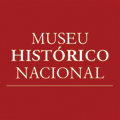Invited Speakers
- Silvia Figueirôa graduated in geology from the University of São Paulo (1981), and got her Master Degree (1987) and Ph.D. (1992) in Social History from the University of São Paulo, both in the specialty of the History of Science. She received the Habilitation in 2001 at the University of Campinas (UNICAMP), where she became full professor in 2006. Her postdoctoral studies were at the Centre Alexandre Koyré d'Histoire des Sciences et des Techniques (France, 2002). Since 1987 she teaches at the Institute of Geosciences, UNICAMP, where she currently holds the position of Director (2009-2013). She has experience in history, with emphasis on the History of Science, as well as on the thematic of scientific archives, acting on the following topics: History of science and geosciences, with emphasis on Brazil; relationships between history of science and education; scientific documentation / technology. She is active in undergraduate and postgraduate levels supervising undergraduate, master, and Ph.D. studentes.
- María Portuondo graduated in electrical engineering from the University of Miami, Florida, and got her Ph.D. in History of Science and Technology from The Johns Hopkins University. She is currently Assistant Professor at Johns Hopkins University and recently received the John E. Fagg prize from the American Historical Association for the best book of History of Spain, Latin-America and Portugal. She has also published papers in national and international journals and obtained twenty-five patents in semiconductor packaging design, computer architecture and electronic connectors awarded in the United States.
- Katharine Anderson graduated in History and English Literature from the McGill University (1986), got her M.A. degree in History from the University of Massachusetts/Amherst (1988), and PhD in History (1994) from the Northwestern University. She is currently Associate Professor in the Science and Technology Studies Program, Division of Humanities, Arts Faculty, York University. Publications include Predicting the Weather (Chicago, 2005), articles on observation practices in meteorology and oceanography in the nineteenth and early twentieth century, and most recently an annotated edition of the captains' narrative of the surveying voyages of HMS Adventure and Beagle 1826-36 (Pickering and Chatto, 2011). Her current book project is on oceanography in the 1920s and 1930s but an interest in the earth sciences, travelling and scientific instruments have combined in a project on Miller and the torsion balance. She is active in undergraduate and postgraduate teaching in science and technology studies.
- Juan Pimentel Igea graduated in Geography and History from the Universidad Complutense de Madrid (1987), and got his Ph.D in Geography and History from the same University (1994). His postdoctoral studies were at the Université Paris III (1994); at the Dept. of History and Philosophy of Science, from the University of Cambridge (1994-1996) and at Centro de Ciencias Humanas y Sociales (CSIC) from the Madrid Autonomus Region (2000-2001). He is currently Tenured Scientist at the CSIC since 2006 and coordinates research projects in the areas of History of Science; Science & Culture in the Early Modern Age; Scientific explorations & travel literature; Globalization & imperial dynamics of science. He has also published books and papers in national and international journals.










